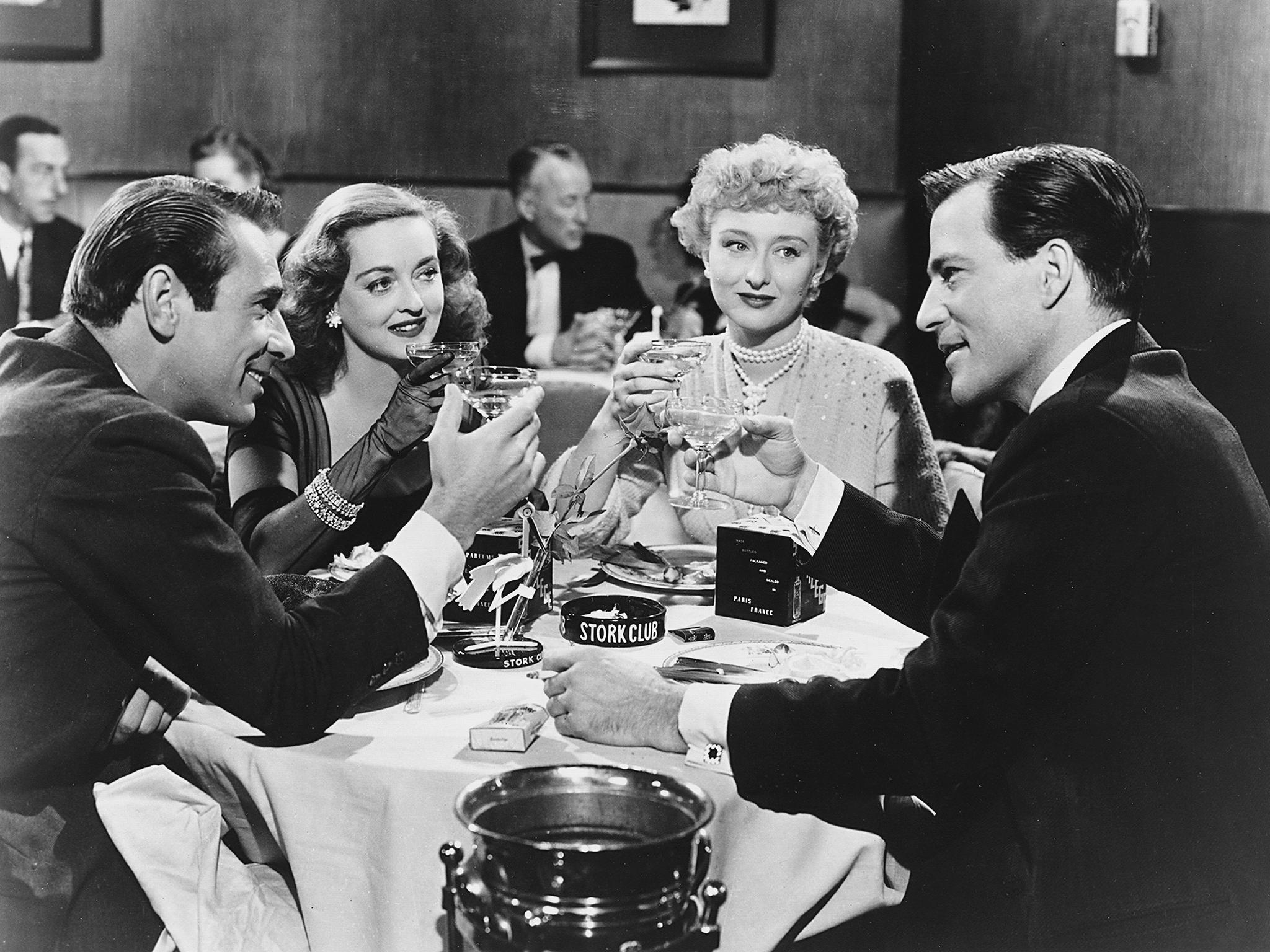All About Eve: Why the backstage melodrama being revived with Gillian Anderson and Lily James is so enduring
'Fasten your seatbelts, it's going to be a bumpy night!'
Gillian Anderson and Lily James are starring in a new production of All About Eve in London’s West End.
Anderson, most recently seen in the Netflix comedy Sex Education and soon to play Margaret Thatcher in The Crown, will appear as Margo Channing, an ageing Broadway actor who is gradually usurped by Eve Harrington (James), the scheming young ingenue she has befriended and taken on as a personal assistant.
Director Ivo van Hove’s version, featuring new music by PJ Harvey, previews at the Noel Coward Theatre on Saturday 2 February and adapts the Oscar-winning Joseph L Mankiewicz film from 1950, which starred Bette Davis and Anne Baxter.
Mankiewicz’s film was nominated for 14 Academy Awards, winning six, and is remembered for its ferocious central performance from Davis and for its caustic dialogue, much of it delivered by a Martini-dry George Sanders as theatre critic Addison DeWitt.
All About Eve‘s screenplay, written by Mankiewicz himself, was based on Mary Orr’s short story “The Wisdom of Eve”, published by Cosmopolitan in May 1946. It was taken from an anecdote Orr heard regarding the Viennese actress Elisabeth Bergner, who came to regret hiring fan Martina Lawrence to be her private secretary when the girl developed a habit of undermining her.
Anthony Quinn of The Independent voted All About Eve his greatest film of all time in 2009 and Geoffrey Macnab recently placed it among his top 10 Best Picture winners.
Mankiewicz’s backstage melodrama is certainly hard to fault, as psychologically astute as it is superbly written and played; the supporting cast also includes Celeste Holm, Gary Merrill, Hugh Marlowe, Thelma Ritter and even a young Marilyn Monroe.
It also addresses a number of themes still highly relevant today in this image-obsessed moment, and is frequently uncomfortably frank about the sacrificies demanded by success and the Darwinian nature of rivalry.
Like Billy Wilder’s Sunset Boulevard, released the same year, Eve deals sympathetically with an older woman’s anxieties about her fading looks and her fear of having only ever been loved for her beauty, not the content of her character.
Like Joseph Losey’s The Servant (1963), scripted by Harold Pinter, or Barbet Shroeder’s Single White Female (1992), Mankiewicz’s screenplay is about the nightmare of being pursued and replaced by an ambitious pretender. Or, like Ingmar Bergman’s Persona (1966), having your identity challenged, subsumed and even lost altogether.
Eve Harrington also has something in common with Dickens’ Uriah Heep from David Copperfield (1850). Whereas the obsequious clerk insists on his modesty to mask a ruthless self-interest, Eve consciously deploys charm and flattery to the same end: infiltrating Margo’s Manhattan social circle with a view to unseating her.

On the transitory nature of fame, All About Eve echoes the moral of A Star is Born, which was first filmed in 1937 with Judy Garland and James Mason and most recently with Lady Gaga and Bradley Cooper.
Perhaps its closest recent approximation is Olivier Assayas’s Clouds of Sils Maria (2014), in which Juliette Binoche fears appearing in a revival of the play that first made her famous opposite a much younger co-star.
“Funny business, a woman’s career,” Davis’s character Margo reflects in Eve. ”The things you drop on your way up the ladder so you can move faster. You forget you’ll need them again when you get back to being a woman.”
Davis, who only got the role after Claudette Colbert injured her back, went on to specialise in playing venomous crones in films like What Ever Happened to Baby Jane? (1962), Hush... Hush, Sweet Charlotte (1964) and The Nanny (1965), and knew all about the realities of her industry.
She placed an advert in Variety around that same time, reminding the film industry she was still available to work and highlighting the lack of roles for mature women: “Thirty years experience as an actress in Motion Pictures. Mobile still, and more affable than rumour would have it. Wants steady employment in Hollywood.”

And while matters appear to be slowly changing for the better in Hollywood, lead actors of a certain age still have every reason to look back over their shoulders at who might be waiting enviously in the wings to succeed them.
Join our commenting forum
Join thought-provoking conversations, follow other Independent readers and see their replies
Comments
Bookmark popover
Removed from bookmarks